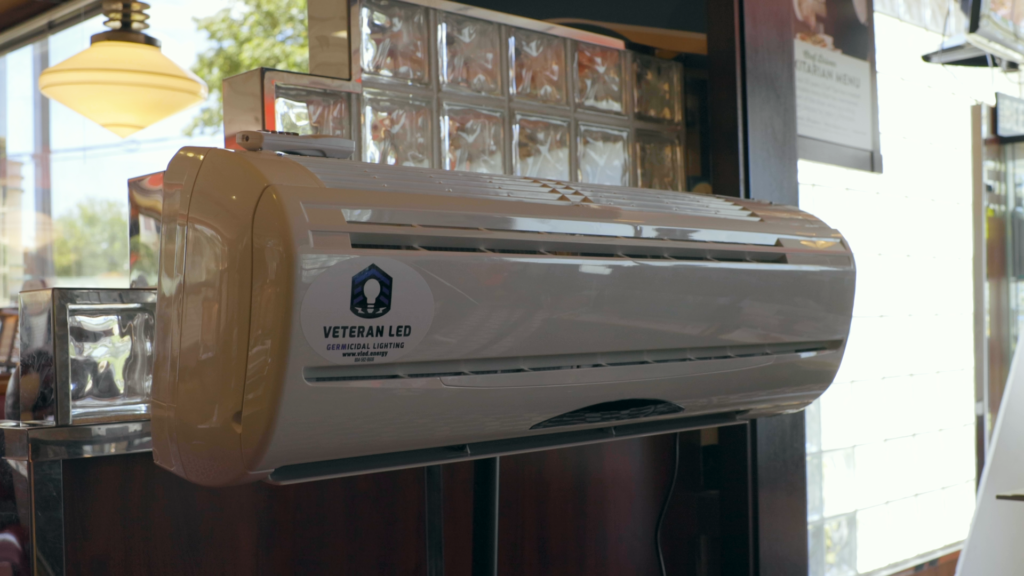Times are tough for a lot of people, entrepreneurs included. COVID-19 and the safety requirements associated with minimizing its spread have wreaked continuing havoc on businesses of all shapes and sizes. Despite government stimulus programs, well over 11 million Americans remain unemployed.
While a great many American businesses have struggled during these times and while some have been forced to close their doors for good, others have successfully navigated these chaotic times, pivoting their product and service offerings to adapt and thrive. While many businesses, especially early on in the year, took a defensive posture to preserve their resources, some took a dramatically different approach, finding ways to quickly adapt to meet the challenges of the pandemic head-on.
These are the stories that inspire me. The ones that energize me and steel my resolve that American ingenuity is alive and well. These are the stories that I feel compelled to share with others.
Less than a year ago, former United States Marine Chris Rawlings, was growing a small business in Virginia helping his customers evaluate and optimize their lighting and HVAC systems to save money and to create less of an environmental burden. His company, Veteran LED, was expanding into more commercial clients and even began supporting clients in the government sector. They were doing good work and enjoying the success of a rapidly growing business. Enter COVID.
To Freeze or to Act?
“During the first few weeks [of the pandemic] we moved into ‘double time’ to be the best of things while working remotely,” Rawlings shares. While many of Veteran LED’s clients and competitors “froze” in the face of the pandemic, Rawlings and his team focused on taking action. Quickly, Rawlings came to the realization that simply out-working his competition might not be the solution he would need to thrive in this new environment and he and his team dove deep into a new approach- understanding the research behind germicidal UVC lighting and HVAC systems. What they found inspired an opportunity to pivot their business to meet the new needs of their clients.
Betting on the science, the Veteran LED team quickly dove into the latest germicidal research and technology and tested ways to integrate it into their existing practices. This enhanced product and service offering received overwhelmingly positive feedback from clients as they were struggling to find ways to keep their employees and customers safe as they worked to reopen their doors.

The first organization to partner with the team at Veteran LED was Silver Diner, a regional 20-restaurant chain located in and around Washington, DC and New Jersey. It became the first restaurant group in the country to implement germicidal cleaning throughout all its restaurants. Silver Diner’s Co-founder and Executive Chef, Ype Von Hengst, felt that the business, “ha[s] some hard choices to make.” Being in the foodservice industry, Hengst and his colleagues have had to adapt and take risks to stay current and competitive. “ As a business that has seen the advantages of adapting to meet changing customer needs, Silver Diner has led in the integration of heart-healthy items, farm-to-table, and the elimination of trans-fats over the years. This ability to assess the operating environment and to adapt their business to changes in the market gave Silver Diner the ability to survive and thrive over the decades and it’s the same approach that Veteran LED has taken during the current pandemic. Maybe that’s one of the reasons the two companies felt comfortable moving forward with their current effort to make all of Silver Diners’ employees and customers as safe as possible through their germicidal efforts, which include germicidal UVC lighting, HEPA filtration, microbial laminated menus, plexiglass shields, and personal protective equipment.
Considering a business pivot yourself?
There are likely quite a few of you out there who have found yourself in a similar situation these past months, finding yourselves impacted by the pandemic in ways you may not have seen coming. If you are looking to figure out ways to pivot your businesses to survive and thrive in this new reality, here are some things to consider:
1. Resilience is powerful but only if you’re moving in the right direction. The ability for an individual or organization to gut through the difficult times is commendable to the core. A bit of ‘intestinal fortitude’ is what can really separate the good from the great but doubling down on a strategy that is doomed from the start will just leave you exhausted.
2. Don’t be afraid to ask the tough questions. To the point above, working your heart out to find yourself careening down the path you’re comfortable with won’t guarantee success when the operating environment shifts on you. Being brave enough to take a deep look in the mirror and to admit that there may be greener pastures on the other side of the tracks may be the difference between long-term success and failure.
3. Be prepared to capitalize on a chaotic environment but do it for the right reasons. As Winston Churchill said, “Never let a good crisis go to waste.” For those entrepreneurs who can read the tea leaves, committed enough to push through the difficulty, and humble and creative enough to see the opportunity that lays before them, crises can become rare opportunities to pivot into new situations that bear fruit for years.
It feels like it should go without saying but the decision to pivot may make sense for your business but does it add value to your customers? Making sure that you are making decisions both in the best interest of your business, your people, and your customers is not to be underestimated. Making decisions that will only help you aren’t going to set your pivot up for long-term success.
4. Don’t make the decision to pivot lightly. When considering a fundamental business pivot, there’s a reason why that voice deep in your head tells you you’re crazy. Pivoting forces you to face a lot of things all at the same time- The prospect of doing something new that you’ve never done before. The judgment that what you’ve been doing to this point was wrong. Consider making sure that you know what you’re getting into, and why, when contemplating such a big move.
5. Do something. Whatever your final decision is. Pivot. Hold what you’ve got. Do something. Don’t let the situation paralyze you. This may have a bit of a pang right now if you learned this lesson the hard way over the last few months. Rawling’s advice, “Listen and reach out to those who have more experience and then put in the work.” You may be tempted to get lost in the land of analysis paralysis when considering a pivot. Do your homework, analyze the variables, and act.
6. Don’t fake the funk. You owe your existing and potential customers the truth about what you’re doing. I’ve never been a fan of the ‘fake it till you make it’ philosophy. When Rawlings began initial discussions with the leadership team at Silver Diner, he told them directly, “Over six years, I have garnered extensive knowledge in lighting and building systems. I’ve spent the last two months researching the science behind germicidal lighting, air purification, and everything I’m selling to you today. You can refer to my 7-page white paper and 20-minute webinar that dives into the details of it all, but I just want to be clear, I’ve never done this before. I will make every possible effort to make sure this project goes smoothly and we both reach our desired outcome of creating a safer indoor dining experience for your customers, and workplace for your employees.”
Rawlings and the team at Veteran LED were stepping into a completely new situation and service offering and they respected their customers enough to be honest about it.
The COVID-19 pandemic has impacted individuals and businesses quite differently over the past six months. Unfortunately, for many, this meant unemployment or shuttering the doors of businesses forever. Others have bared down and figured out a way to survive. Still, fewer have been able to see the opportunity to serve new markets and have been brave enough to make the tough decisions required to adapt to thrive. In partnership with a customer who is brave enough to be first adopters to lead their industries to do what’s best for their customers, employees, and businesses they are forging new paths to help others learn to thrive in today’s new operating realities.
This article originally appeared on Forbes.com.

